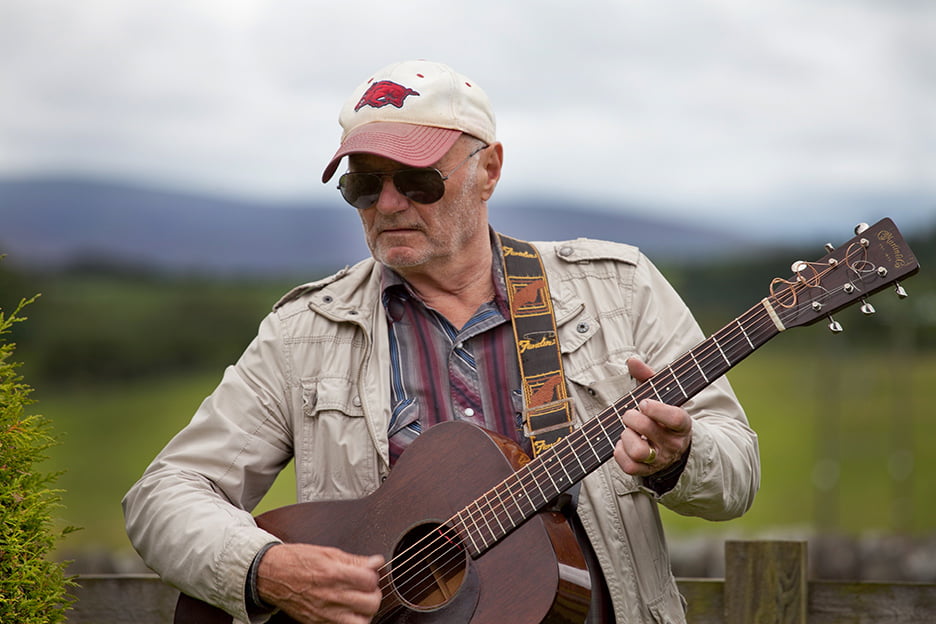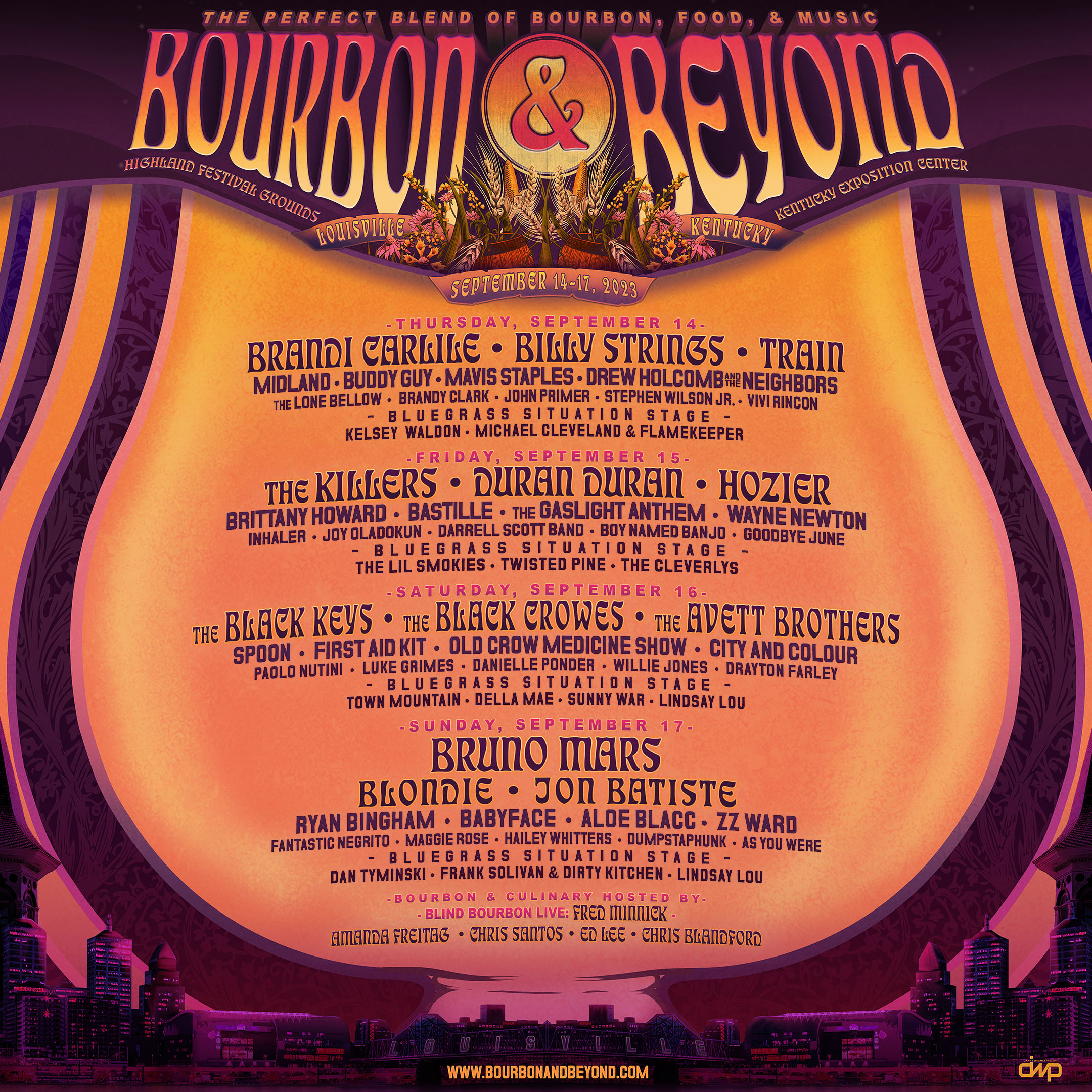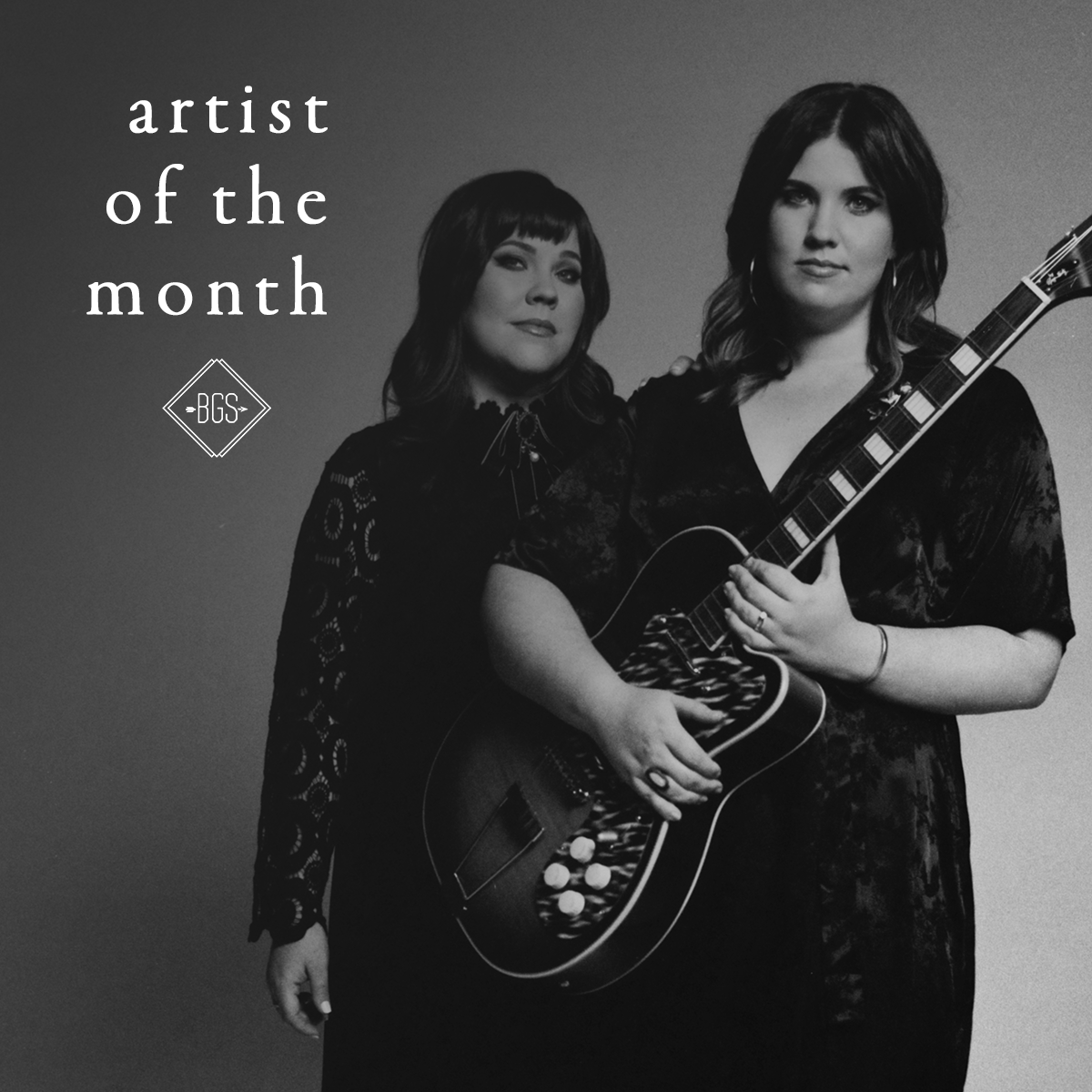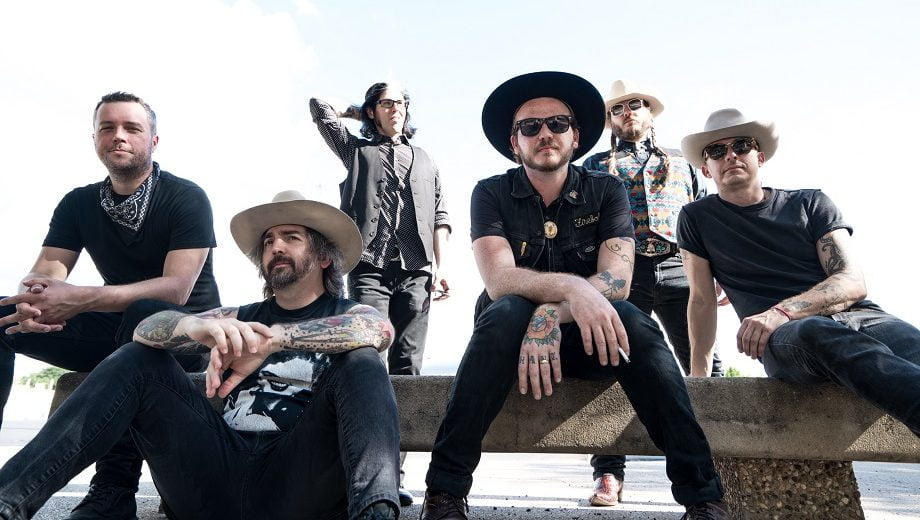Prolific British singer/songwriter Michael Chapman returns this year with 50, an album named to celebrate the impressive and slightly staggering number of years he’s been touring. Chapman first picked up a guitar in high school in the mid-1950s, but due to the dearth of educational materials available at the time, he ended up teaching himself by listening to records again and again and again. He discovered an affinity for jazz guitarists like Django Reinhardt and Wes Montgomery along with blues guitarists like Big Bill Broonzy — differing styles which all became part of the pattern that is Chapman. History may want to place him squarely in the folk category, but he sees himself differently. He’s conversant in numerous languages, and he’s simply melded them together to create his own.
In 50, Chapman’s style finds its psychedelic inner child on songs like “Memphis in Winter” and “The Prospector.” It’s a subtle but present element helped along no doubt by producer and collaborator Steve Gunn. When the two revisited “Memphis in Winter,” which appeared on Chapman’s 2008 album, Time Past Time Passing, among others, they shortened it to just under seven minutes and applied a slick brushstroke of lead guitar to contrast the song’s more contemplative moments. Then there’s the yearning of “Falling from Grace,” a stunning conversation between two guitars, each of which appears to espouse a different life philosophy, while Chapman’s voice quietly sings against their chatter. And that’s before a piano in the corner offers its opinion.
For anyone who thinks education ends once you graduate or life’s lesson soften or shorten with age, Chapman exists as proof positive that it’s a never-ending process. He remains hungry for more and, more importantly, has developed the necessary sense of humor to help him along his way.
Your mother purchased a guitar for you when you were in high school, and you used to play it in the back of history class. Did you never get in trouble? That seems wild.
I was always in trouble. The problem with me and school was, I was one of those bad boys, but that went along with a high intelligence. They could never work me out, whether I was just ass or intellectual.
So without any guidance, you channeled your own curiosity into projects?
It made me get used to the fact that I was going to have to help myself. Ever since I’ve been done with school, that’s what I’ve been doing.
That makes sense, considering you turned to the great guitar players like Django Reinhart and Wes Montgomery to learn your craft.
I’ve always looked upon it like you’re a child learning to speak and, at first, you learn a few words, then you get a few phrases and, finally, you get to make up your own sentences. I look upon guitar playing like that. You have to learn the language before you can start to say what you want to say. In the back of my mind, I always wanted to figure out me, but to get there, I had to learn how to play like a lot of other people.
Well, that is a nugget of wisdom, if ever I heard one.
I’m still doing it. In those days — we’re talking about the mid-50s — there were no books to teach guitar, there were no DVDs or cassettes. You didn’t see guitar players on TV. I’d hear a record and, if there were two guitar players on it, I didn’t know, so I tried to play like two guitar players at once. I had a guitar for nearly three weeks before someone said, “You have to use the other hand, as well,” and I said, “Nah, come on, that’s going to be far too difficult.”
I love how you and Steve Gunn reshaped “Memphis in Winter” for the album. How did you decide upon revisiting it in this way?
I asked Steve to ride shotgun on the album. When you play everything and produce yourself, you can sometimes get so close to it you can’t see it. I asked Steve to ride shotgun and make sure that I didn’t go wandering off on a track that was never going to be any good. We enjoy playing together, so I put down the basic acoustic track and it was just Nathan [Bowles] banging his foot because, in a way, it didn’t need much else. I love what they do on it. Basically, that whole record was made by a bunch of friends sitting around in a room seeing what we could do with some songs. The last few records I’ve made, I had a studio down the road I had an interest in and it didn’t cost me anything, so I could go in there and spend as much time as I wanted. Sometimes you’ve got to realize that it’s not a perfect world and I’m not a perfectionist. To me, if it feels right, it is right, but sometimes it takes me a long time to get it feeling right. It’s confusing, isn’t it? But it’s confused me all my life. I’m still trying to figure it out.
Do you think you’ll ever reach a place where that kind of questioning has settled?
I’m always looking. Some of the records I’ve made over the last five or six years, I would never have thought I’d be interested in getting anywhere near. It started with that noise record I made with Thurston [Moore]. It’s incredibly interesting to me.
Besides Thurston, have you discovered anyone more contemporary that sets your pulse racing?
It depends on what I hear. According to my record collection, my favorite guitar player is Graham Green. But I listen to all kinds of people. A friend of mine in Nashville — William Tyler — has just come out with probably the best album of last year, an astonishing album called Modern Country. What I’ve heard lately is what friends of mine have given me, like Steve’s album, or Hiss Golden Messenger — that’s a great album. You’ve got to check out Nathan Bowles. He’s done a banjo album that’s sensational, and I hate banjos.
“Memphis in Winter” and “The Prospector” contain this subtle psychedelic nod when it comes to guitar. You’ve played in many different styles, but I was most struck by that sound. Where is that impulse coming from?
That’s a really good question that I might not have an answer for. You’ve got the old cogs grinding; I’m going to have to think. I’m not a rock guitar player, by any means, but I sometimes enjoy people who are. Steve has, over the last five years, turned into a lead guitar player. He’s willing to take risks. He’s not your average clichéd rock guitar player.
Right, and then there’s his work with Kurt Vile.
Kurt’s an interesting guy, as well. I’ve done tours with Kurt.
I can’t even imagine what those green room moments were like.
Well, you know, I usually have a bottle of water and Kurt usually has a bottle of beer. I don’t drink when I’m playing. I mean he doesn’t drink much.
Speaking about touring, where does that energy and drive come from?
Red wine.
That is such a good answer. I don’t think I’ve ever heard someone reply with that.
Only because it’s true.

You don’t ever feel tired?
To be honest — and I hate to admit to this — I’m getting tired. I was working in Switzerland at the beginning of December and I was tired, and I’m just beginning to wake up. I’ve got to realize I’ll never be 30 again.
The energy levels certainly change.
I’m trying to slow down. I’m going to get a driver next year, because I can’t do long distance driving anymore. I hate to admit it even to meself, let alone to you.
I think it’s such a disservice when creative types fail to admit there can be such lulls, and that’s not even considering the touring aspect. I can only imagine how much touring takes out of you.
The playing’s great. It’s getting there that’s the problem because there’s no pleasant travel these days. You get on a plane, it’s always full, there’s never a spare seat; you get on a train, it’s the same; you get in a car, it’s far to drive and then you have to get out and go to work. When you’re young, you don’t know. I used to drive myself and stay awake for four days. Those days are over. You’ve just got to admit it.
I’m in my 30s and I don’t think I could stay awake for four days, at this point.
You’ve got to try. You’ve got to practice. Come on, Amanda.
With age, so they say, comes wisdom, and you’ll be turning 76 shortly before 50 comes out. What would you say is the most curious piece of wisdom you’ve obtained?
Persevere. Not everything happens immediately. Guitar playing is a process that I haven’t finished yet. I didn’t get it right on day six or day seven, or even year six or year seven. I still want to be better than I am, and I think I’m playing pretty good these days, because I stopped being a guitar technician. I like to think these days I play more atmospheric guitar than technical guitar. Does that make sense?
Absolutely, there’s more of a mood coming across than perfection.
In those days, when I learnt all that Django Reinhardt, I could play the guitar really fast. It was crap; it was really fast crap.
I think your idea about perseverance quite interesting coming at a time when so many seem to expect so much so quickly.
They expect gratification.
Instantly and there’s an entitlement behind it, too.
I’m still trying to figure things out.
Which, I think, is a life-long process. It never ends.
It has been to me, yeah. I have friends around my age and, for the last 20 years, they’ve made the same record. They have a style and they’ve stuck to it because people know what it is. In a way, that’s been a drawback to me, because it’s “What the hell is he doing now?” They have to make a record every three years, but it’s just like the one they did before that and like the one they did before that because they put all their notes in the saddle and they think, “That’s my identity.” Well, my identity is that maybe I haven’t got one. We’re all influenced by what we hear. If you keep on playing and keep your ears open things are bound to stick.
Photo credit: Carol Kershaw



